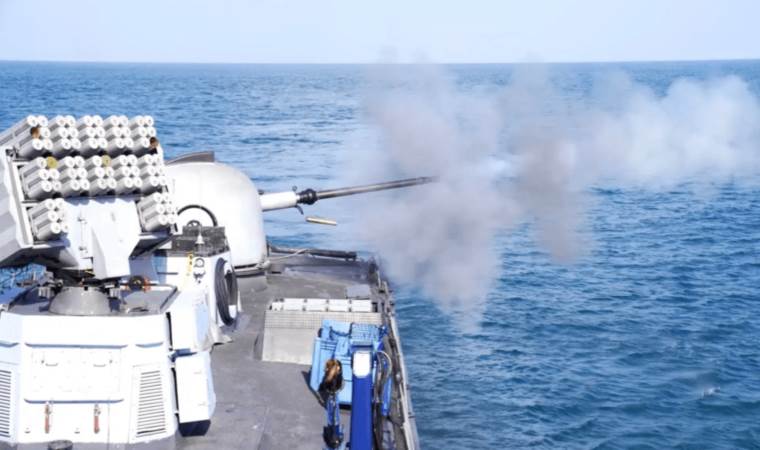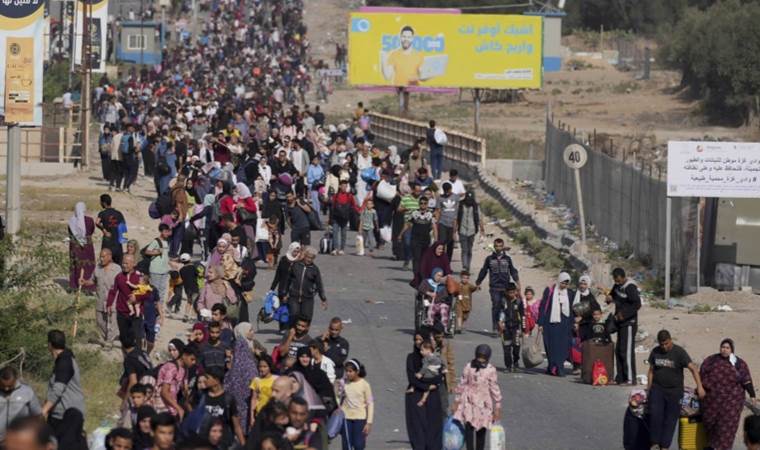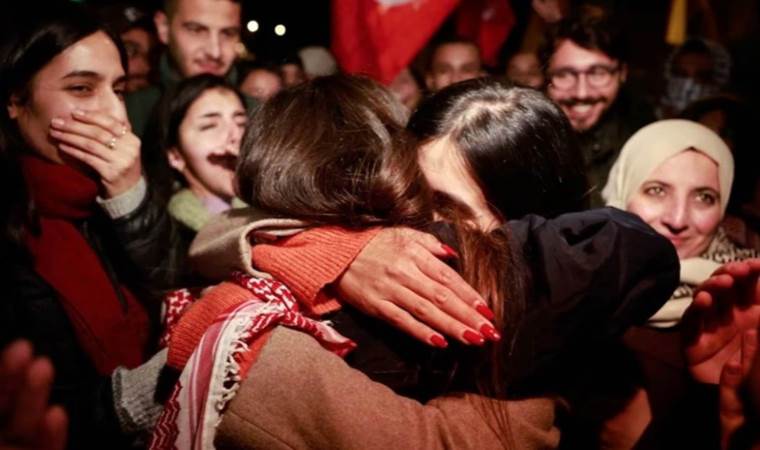Gaza residents seek shelter as Israeli bombing intensifies
Palestinian civilians in the Gaza Strip sought shelter in an ever-shrinking area of the south on Sunday as Israel stepped up its bombing from air, sea and land across the enclave.

Bombardments were concentrated on Khan Younis and Rafah in the south, residents said. Hospitals were struggling to cope with the flow of wounded, they said.
The renewed warfare followed the collapse on Friday of a seven-day pause in the fighting between Israeli forces and Hamas militants to allow an exchange of Israeli hostages and Palestinian prisoners.
It took place despite growing calls from the United States - Israel's closest ally - for Israel to avoid further harm to Palestinian civilians.
More than 15,400 have been killed as of Sunday, according to the Palestinian Bureau of Statistics, in nearly two months of warfare that broke out after a Hamas cross-border raid on southern Israel on Oct. 7 in which 1,200 Israelis were killed and more than 200 taken hostage.
Israel says it is acting to annihilate Hamas, saying it poses a mortal threat to the Jewish state's very existence. The present war has become the bloodiest episode in the decades-old wider Israel-Palestinian conflict.
Gaza residents said on Sunday they feared an Israeli ground offensive on the southern areas was imminent. Tanks had cut off the road between Khan Younis and Deir Al-Balah in central Gaza, effectively dividing the Gaza Strip into three areas, they said.
The Israeli military issued a statement ordering Palestinians to immediately evacuate half a dozen areas in and around Khan Younis. It posted a map highlighting shelters they should go to west of Khan Younis and south towards Rafah, on the border with Egypt.
But residents said that areas they had been told to go to were themselves coming under attack.
Israeli tanks were shelling the eastern sector of Rafah on Sunday morning, residents said. There was no immediate comment from Israel on that development.
There was hardly any space for more displaced people in the south after hundreds of thousands had fled the Israeli ground invasion in the north of the enclave, the residents said.
"Before, we used to ask ourselves whether we will die or not on this war, but in the past two days since Friday, we fear it is just a matter of time," said Maher, a 37-year-old father of three, who spoke to Reuters by telephone.
"I am a resident of Gaza City, then we moved to Al-Karara in southern Gaza Strip and yesterday we fled to deeper shelter in Khan Younis and today we are trying to flee under the bombardment to Rafah," he said.
U.N. officials and residents said it was difficult to heed Israeli evacuation orders because of patchy internet access and no regular supply of electricity.
Israeli Prime Minister Benjamin Netanyahu said on Saturday that Israel was coordinating with the U.S. and international organisations to define "safe areas" for Gaza civilians.
Tunnels hit
The Israeli military said on Sunday its war planes and helicopters had struck Hamas targets including tunnel shafts, command centres and weapons storage facilities. Naval forces had hit Hamas vessels on the coast, it said.
The military declined to give figures on the number of air strikes carried out.
Palestinian health officials said air strikes destroyed several houses in the Al-Karara town near Khan Younis overnight, killing several people including children.
Residents and Hamas media reported intensive bombing, east of Zeitoun in Gaza City and in Tel Al-Zaatar in northern Gaza Strip.
In Bani Suhaila, east of Khan Younis, Palestinian health officials said two people were killed and others were wounded in an Israeli air strike on a house. Bombing in Tel Al-Zaatar destroyed the houses of two families and caused casualties, medics said.
The handful of hospitals in Khan Younis that are still operating were flooded with wounded, and with crying people mourning loved ones killed.
Hamas said it targeted the coastal Israeli city of Tel Aviv with a rocket barrage. There were no reports of damage, but paramedics said one man was treated for a shrapnel injury in central Israel.
It also said its fighters attacked two Israeli tanks with rocket-propelled grenades Beit Lahiya in the north.
Reuters could not independently verify the accounts.
'Moral responsibility'
In a sign of growing U.S. concern about the human cost of the war, U.S. Vice President Kamala Harris said too many innocent Palestinians had been killed in Gaza, and Defense Secretary Lloyd Austin deemed it a "moral responsibility" for Israel to protect civilians.
Speaking in Dubai on Saturday, Harris said Israel had a right to defend itself, but international and humanitarian law must be respected.
"Frankly, the scale of civilian suffering, and the images and videos coming from Gaza, are devastating," Harris told reporters.
Austin weighed in with perhaps his strongest comments yet on Israel's need to protect civilians in Gaza, calling it a "moral responsibility and strategic imperative".
"If you drive them into the arms of the enemy, you replace a tactical victory with a strategic defeat," Austin told a defence forum in Simi Valley, California.
Austin also pledged the United States would stand by Israel as its "closest friend in the world".
About 1.8 million people, or 80% of the population of the Gaza Strip, have fled their homes since Oct. 7, according to the United Nations.
Since the outbreak of war two months ago, more than 400,000 displaced people have sought shelter in the city of Rafah and nearly 300,000 displaced people have taken shelter in the city of Khan Younis, according to the U.N. humanitarian office.
Disease is spreading rapidly through overcrowded shelters in existing refugee camps and makeshift housing in schools, the World Health Organisation said.
The warring sides blamed each other for the collapse of the truce, during which Hamas had released hostages in exchange for Palestinian prisoners held in Israeli jails.



